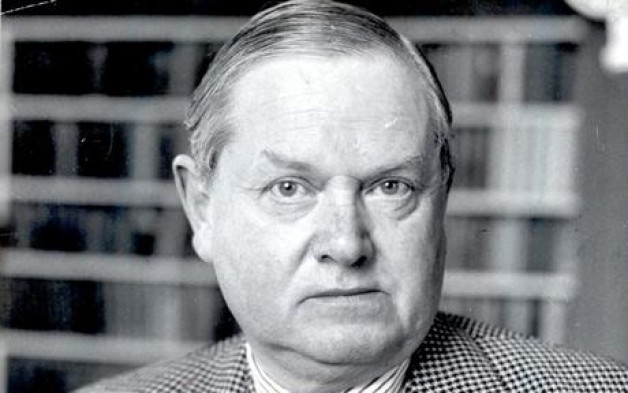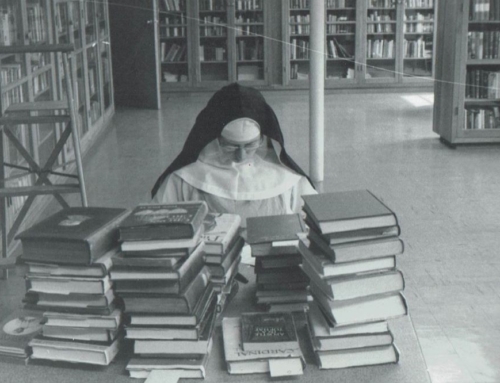I remain skeptical, but I can see why some people think G.K. Chesterton should be considered for beatification. He was a giant of generosity and goodwill, as his life, writings, and waistline make clear. On the other hand, it would be hard to credit the sincerity or the sanity of someone who claimed sanctity for another, very different Catholic author of the twentieth century: Evelyn Waugh. While Waugh holds a high place in the history of English prose, as even the most militantly secular scholar will admit, on the moral plane he seems to have been, like most of us, mediocre at best. Only, whereas most mediocre people are nice, he could be, and often was, rather nasty.
Perhaps, when one is a brilliant satirist, being rude and insulting is an occupational hazard, and, no doubt, some of Waugh’s spleen can be chalked up to an attempt to protect his privacy, to shield his real self from public scrutiny. But that he sometimes succumbed to genuine spite and that he recognized this as a fault, is indicated by a remark he made to his friend, Nancy Mitford, who, after witnessing Waugh reduce a young admirer to tears, asked him how he could behave so cruelly and still call himself a Christian. He said in reply, “You have no idea how much nastier I’d be if I was not a Catholic. Without supernatural aid I would hardly be a human being.”
It seems that this was not merely a glib reply, but that Waugh was speaking with some degree of seriousness and sober realism about himself. After all, the statement is an implicit admission of guilt, and Mitford, who had invited Waugh to meet the young admirer in the first place, would have been too upset with him to brook any flippancy.
In any case, Waugh’s reply should strike a chord in the heart of every Christian, or at least in the heart of every Christian who is acquainted with his own sinfulness. Its import is not so much, “There, but for the grace of God, go I,” but rather, “There I go quite frequently, and, but for the grace of God, I would go even worse places.”
Although this may sound a bit depressing, it is actually a very effective antidote to despair, for the greatest temptation to despair arises from the consideration of those seemingly incorrigible vices and weaknesses, whatever they may be, that plague our daily life and frustrate our attempts at reform: our habitual loss of temper, habitual laziness, habitual sexual sin, habitual gluttony, habitual neglect of prayer, habitual gossip, etc. As we contemplate such things in our lives, the voice of despair, the old accuser, whispers to us in insinuating tones, “Why not just give up? You’re no good, anyway.”
To those of us who are so tempted, the first part of Waugh’s reply is a reminder that, even if we aren’t very good, we will become very much worse the moment that we give in to despair; and the second part reminds us that, without God, all our best efforts would avail us nothing. Left to ourselves, we would be “hardly human.” This is the humility that is learned when, after falling once again, we once again acknowledge our fault, accept God’s mercy, and ask him to help us be more faithful, more loving. This is the humility that goes hand in hand with gratitude, and it is more valuable than a whole lifetime of proud, ungrateful decency—or of self-loathing despair.
Evelyn Waugh was no saint, but he knew something about sinners. May his soul, and the souls of all the faithful departed, rest in peace.
✠
Image: Associated Newspapers, Evelyn Waugh







